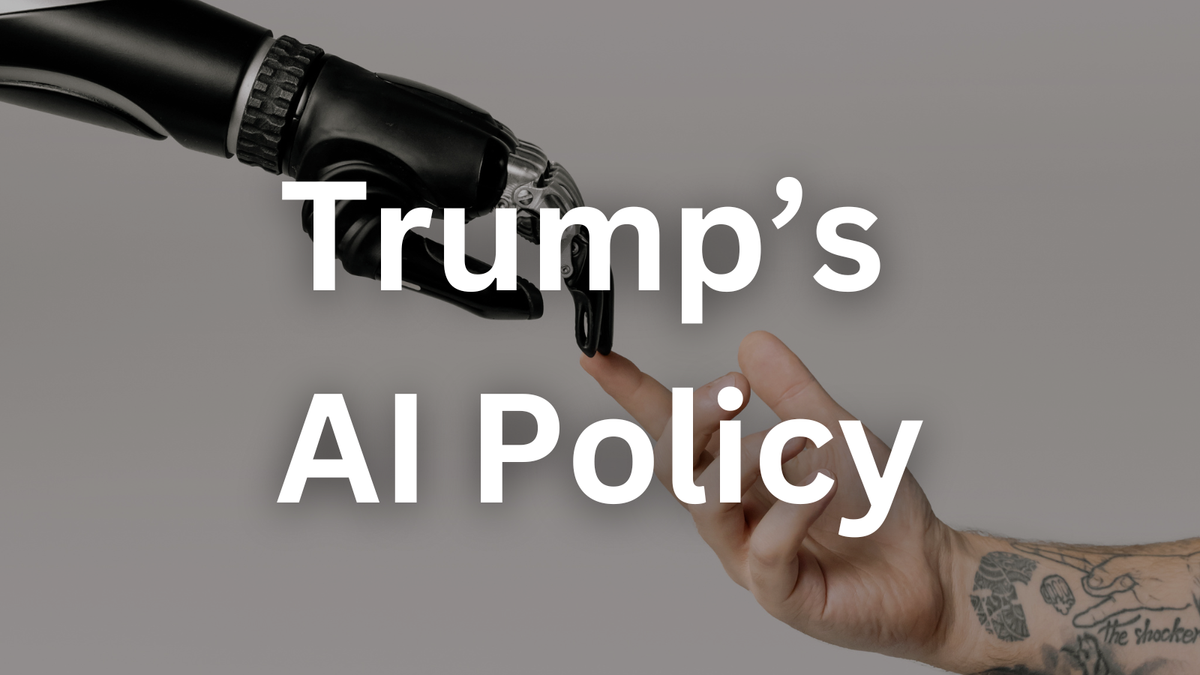Trump’s AI Policy: Streamlining Innovation or Ignoring Risks?

The White House is shaking up federal AI strategy—but will it accelerate progress or cut corners? The Trump administration has unveiled a new AI policy that prioritizes "high-impact" use cases while scrapping Biden-era safeguards as "risk-averse." Critics warn workforce cuts and opaque projects like DOGE could undermine responsible implementation. Let’s dive in.
🔍 The Problem: Bureaucratic Gridlock vs. Reckless Speed
- 📋 Biden’s Compliance Burden: Agencies previously faced dual "rights" and "safety" risk categories, requiring exhaustive documentation for AI projects.
- ⏳ Resource Drain: A former official called Biden’s approach a "massive effort" that slowed deployment across 180+ agencies.
- 🔄 Policy Whiplash: Trump rescinded Biden’s 2023 AI Executive Order and replaced it with OMB memos emphasizing speed over safeguards.
✅ The Solution: Focus on “High-Impact” AI Use Cases
The April 3 OMB memos aim to:
- 🎯 Streamline Risk Management: Consolidate 15 "high-impact" categories (e.g., healthcare diagnoses, benefit determinations) under unified standards.
- ⏱️ Extend Deadlines: Agencies get 365 days (vs. Biden’s 180) to document compliance for critical AI systems.
- 📢 Boost Transparency: Mandate public feedback channels for all high-impact AI deployments.
- 💡 Empower CAIOs: Redefine Chief AI Officers as "change agents" rather than compliance gatekeepers.
🚧 Challenges: Workforce Cuts and Shadow Projects
- 👥 Staffing Crisis: Recent layoffs hit HHS’ IT/cyber teams and DHS’ fledgling "AI Corps"—key players in responsible AI implementation.
- ⚠️ DOGE Controversy: The Department of Government Efficiency reportedly uses AI to terminate federal employees without transparency, raising civil liberty concerns.
- 🔒 Skill Gaps: As former OPM CAIO Taka Ariga notes, agencies need legal, privacy, and technical experts to manage high-risk AI—teams now being gutted.
🚀 Final Thoughts: Can This Policy Balance Speed and Safety?
Success hinges on:
- 📈 Workforce Investment: Reversing cuts to AI talent pools at DHS, HHS, and privacy offices.
- 🔍 DOGE Accountability: Ensuring projects align with OMB’s transparency rules (e.g., fraud detection AI must allow public feedback).
- 🤝 Public Trust: Proving streamlined processes don’t sacrifice civil rights—especially in benefit denials or federal hiring.
What’s your take: Is this policy the catalyst federal AI needs, or a shortcut that risks misuse?
Let us know on X (Former Twitter)
Sources: Justin Doubleday. Trump’s AI policy shifts focus to ‘high impact’ use cases, April 8, 2025. https://federalnewsnetwork.com/artificial-intelligence/2025/04/trumps-ai-policy-shifts-focus-to-high-impact-use-cases/










